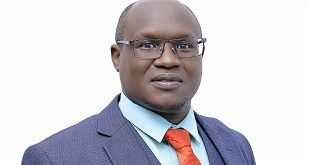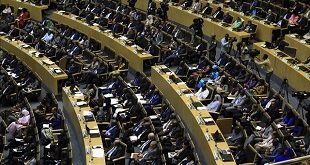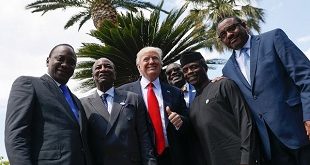
By Mubatsi Asinja Habati
Says after just four months in office, she has recovered over Shs58bn on fake accounts, improved garbage collection by 60%, and cut fuel wastage from Shs 250m per were to 80m. The Independent’s Mubatsi Asinja Habati spoke to her.
Where do you feel you have been most successful since becoming head of Kampala Capital City Authority (KCCA)?
We have put in a finance management system under the KCCA. We are looking at compliance. We have been able to recover a significant number of council valuable properties; vehicles, and empty land. We have so far discovered 32 bank accounts with over Shs 58 billion on them which we did not know about when we came.
How long had the accounts been in existence?
The auditor general is to conduct a terminal audit of KCC to determine what has been going on especially in the financial area. There are accounts that have had fixed deposits in billions of shillings. These accounts were opened and operated without the necessary authorization. We need to understand where the money went; who took it away? We are going to ask government to allow us use this money to run our operations this financial year. We have also tried to put systems to save money for the authority.

The large fleet of vehicles of KCC consumed between Shs200 and Shs250 million a week because there were multiple fuel cards that were in the hands of staff, their relatives, and council members. We have a new fuel management system and in the first week of implementation our expenditure came down to Shs 76 million a week. This control in wastage will help us save Shs 5 billion a year.
Does this mean that the fleet of KCCA vehicles has reduced?
No, the fleet is the same. It is just control in wastage. Briefcase or non-existent companies were being paid for services that existed only on paper. We have managed to weed out many of these companies and created a good database of new credible companies to drive down the cost of doing business for KCCA.
Most people view you as incorruptible. What in your background makes you different?
It is my belief in God. This sets my principles. I decided even before I started work that I will not be corrupt. I want to be accountable to my children and friends and to God.
Have you had situations where you are offered bribes?
When I was working in URA before transformation you had all manner of attractive payments. People would offer millions and sometimes billions of shillings in order to kill a case or sign a document or release a document or to influence a decision. But I made a decision not to take any of these even in the time I was financially hard pressed. In KCCA, even though people regard me as incorruptible, I have had very big offers since I came into office.
To what extent does not being an elected politician affect your work?
I am not a politician but a professional administrator with legal background who was appointed to carry out certain tasks. I want to be judged by results other than by what I say. I am very results oriented and I want quick results.
How different is your job from that of the usual Chief Administrative Officers (CAO) of a district?
My job is defined by the KCCA act. My role is similar to that of a permanent secretary in the ministry as an accounting officer; only that Kampala has so many other things, hospitals, over 100 schools, cemeteries and mortuaries and the normal service delivery of garbage collection, drainages, city planning, taxis, bodaboda and housing issues; there is a lot more. To run Kampala is a like running a nation, you have a bit of everything in the country.
MPs have said they need to amend the law to clearly delineate your role and that of the Lord Mayor and other mayors. What is your view?
In my opinion the law is very clear on the roles of administration and political leaders of KCCA. I think the problem comes with interpretation by different affected people. However, there are some areas where the law is not clear and I think parliament would be right to look at those sections.
What is your disagreement with mayors of KCCA municipalities?
The issue that has been brought up again and again is the one created by the law. Before coming into law, the divisions were separate and self-accounting financially; they had their accounting officers and managed their accounts and could run their programs independently without too much reporting to the centre.
But when the law came into place, it created one entity called KCCA merging all divisions into one corporate body so their independence was removed and there was centralisation. So the divisions can no longer operate as independent entities because we have a single vote and single accounting officer. It does not matter who the accounting officer is, we have to run Kampala as a corporate entity with functions at different divisions budgeted for together. It is about understanding the law and limitations.
Must you be everywhere? Don’t you think that is why some of these divisional mayors are complaining?
Not all divisional mayors have a problem with the new system. Where mayors have submitted programmes we have provided the funds. We need records of what the money will be used for. When we have all structures in place, the accounting officer can delegate and then the executive director can account to parliament. We have no structures approved yet, we don’t have town clerks in these divisions controlling the moneys.
When is this structure supposed to be approved?
The government is supposed to approve this structure and we are having discussions with the ministry of Public Service and they are in advanced stages.
So how are you operating?
We are using the old KCC staff because the law says we adopt them until such a time that the jobs can be advertised and they can apply, sit interviews and those who pass can be appointed.
You recently said there have been attempts on your life; why would someone want to kill you?
The situation has been very bad in terms of accountability and respect for values. We are interrupting very big financial deals. We are destroying the culture of impunity where people have been taking city council property illegally. Inevitably if you begin to interfere with the revenue sources of such people there will be resistance. The threats are part of resistance. They are real and frequent and we are trying to manage our lives in such a way that the threats are not carried out.
How frequent are these threats on your life?
They are very frequent. But at least am not frightened.
Are you not afraid of dying?
Not really. I have a purpose in life and it’s only God who can determine whether that purpose is over. For the time being, I think that purpose is not yet over. But I am also sensitive taking the necessary precautions.
What are the problems of Kampala? How do you intend to solve them?
Mismanagement, lack of accountability, unlawfulness, impunity, people building in the middle of roads and on road reserves, blocked drainages, everybody does what they want, you drive on the pavements when you want, build kiosks in the middle of a street, sell goods in the road pavements, littering everywhere, etc. we want to transform this impunity and bring law and order. You don’t do what you want but do what the law says. People don’t like this but have to learn this.
I can’t do this alone. We have to work with all the stakeholders, the politicians, government, law enforcement agencies and the people on the ground. Much as we have the laws we need the people’s cooperation.
What are the key things you must fix to show that you have been successful?
The most pressing is service delivery. We are putting in place systems such as accounting and auditing, retaining and attracting good staff and laying foundations for a solid structure for city management. In a few months garbage collection has gone up by 60% that’s why you see some semblance of cleanliness in the city. We are also looking at the problem of bad roads.
We are shortening our turnover time when you submit proposals for a contract so that we reach you in short time possible. In the first three weeks of the financial year we were able to collect over Shs 4 billion in revenue which had never happened in the past. We are in process of revamping street lighting and we have got offers from the Chinese government of solar lights in the city. We need to do greening to improve on the way the city looks.
Kampala is described as a disorganised city. Under you, how will Kampala look like?
I want Kampala to look like a modern organised city. We have been removing illegal structures, buildings built on road reserves and drainages. We are looking at decongesting the city, removing the hawkers from the streets and giving them alternative places where they can operate.
What is the justification for Shs 43 million salary you are asking for?
In any job you are asked what your salary expectations are and you throw in your best figure. The employer has to tell you that this is what I would offer. It is a process and it is not just for the top levels. It cuts across to the bottom level employees of KCCA. The minimum pay of the bottom worker in this proposal is Shs 1 million.
People need to understand that if you want quality service delivery and hold people accountable at their jobs you have got to pay them well. I have had Ugandans from allover the world expressing interest to work with us ranging from horticulturalists, florists, solid waste engineers, city planners, traffic managers, etc. the question they always ask is how much are you going to pay us, and I was unable to answer that because I am waiting for government’s response to our salary proposal. We need to move away from staff that have been getting Shs 280,000 where the highly paid is earning Shs 600,000 officially but receiving hundreds of millions in KCCA corridors.
Otherwise brown envelopes, buveras under tables of contract committee and disposing of council property will not end because people have to live. I want government to give me a performance contract spelling out what I must deliver in a specified time and pay me for doing that. It is a tough job transforming this city. The challenges are immense and the threats are real and the volume of work is big.
Don’t you risk being labeled money-oriented?
When you engage a professional to work you have to pay for the work they do. Government needs to make a decision. As I have told you there is a lot of money in the corridors of KCCA. In a week I can get offers of up to Shs 200 million in cash; not taxed and not recorded. Do I want to take the money in the corridors or a salary that government can tax and reduce to Shs 27 million?
I don’t want my staff to be put in a situation where the salary is so low that they will continue taking money in the corridors. The salary level you set the chief executive on determines the level you set for other junior workers. My staff and I are going to make sacrifices but we also have to take care of our needs.
What is your management style?
I am a very hard worker and people around me have to work very hard otherwise they won’t work with me for long. I also demand very high quality output and results. I scrutinise detail so I want very well documented submissions. I want to understand a system without complicating it. I want to communicate and get feedback. I also want to develop leaders; so I delegate a lot. I am also very open. If am not happy with your work output I will tell you quickly but then I don’t dwell on issues; I put it behind me and move. I don’t go personal and I let people to move on with their work.
 The Independent Uganda: You get the Truth we Pay the Price
The Independent Uganda: You get the Truth we Pay the Price


